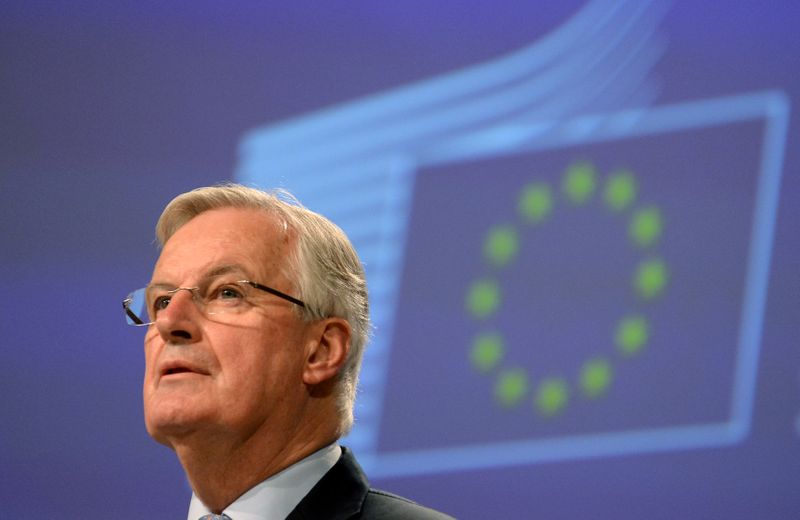
BRUSSELS (Reuters) – Britain is failing to move in talks on its future relationship with the European Union despite setting a tight timetable, the EU’s chief Brexit negotiator said on Friday.
Michel Barnier told a news conference after a second week of talks between Brussels and London that Britain had ruled out an extension to the Brexit transition period beyond the end of 2020.
“The United Kingdom cannot impose this very short calendar for negotiations and at the same time not move, not progress on certain subjects that are important for the European Union,” he said.
The transition period could be extended by a year or two, but Britain would have to request this by the end of June. There are only two further weeks of negotiating rounds scheduled before then – from May 11 and June 1.
Britain had expressed a desire to make tangible progress by the end of June, but had only been willing to do so on a limited selection of issues, Barnier told reporters. Solutions also needed to be found on difficult topics.
The European Commission, which is negotiating on behalf of the 27 EU members, sent to London a 350-page text on March setting out the EU’s position. Britain had only sent texts back on certain subjects, Barnier said.
“We need to make progress on all issues in parallel. We need to find solutions for the most difficult topics. The UK cannot refuse to extend the transition and at the same time slow down discussions on important areas,” he said.
There were four areas in particular where progress was disappointing, he said.
The European Union has insisted on guarantees of a level playing field, including such areas as taxation and state aid.
The talks had also highlighted problems surrounding governance of the future partnership. The EU wants a single framework to oversee all areas, while Britain wants separate agreements with separate arrangements, Barnier said.
Britain was failing to give firm guarantees on fundamental rights and insists on lowering current standards and deviating from standards on data protection and this created “serious limitations” for the future partnership, Barnier said.
Finally, Barnier said the talks had made no tangible progress on fisheries.
“The EU will not agree to any future economic partnership that does not include a balanced, sustainable and long-term solution on fisheries.”
Britain formally left the bloc on Jan. 31 this year, just before the coronavirus epidemic hit the country.



